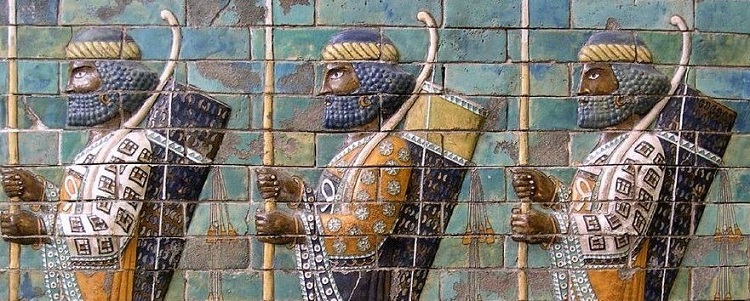Why war is a man’s game
 No sex differences in attitudes or abilities are needed to explain the near absence of women from the battlefield in ancient societies and throughout history, it could ultimately all be down to chance, say researchers at the University of St Andrews.
No sex differences in attitudes or abilities are needed to explain the near absence of women from the battlefield in ancient societies and throughout history, it could ultimately all be down to chance, say researchers at the University of St Andrews.
The findings, published in Proceedings of the Royal Society of London Series B (15 August), have implications for our understanding of the origin of war and violence-related psychological disorders.
Led by Alberto Micheletti, a PhD researcher in the University’s School of Biology, the research team used evolutionary models to investigate why almost-exclusively men have gone to war, until very recent times.
The mathematical analysis considered how male participation and female participation in war evolve over time, showing that they can influence each other. Previous hypotheses have suggested that male-only war is the result of fundamental differences between the sexes, for example men being on average stronger and thus more effective in war.
Mr Micheletti said: “Our study shows that these differences are not needed to explain why women generally don’t go to war. We found that the more one sex participates in warfare, the less the other sex is incentivised to do so. Over time, this leads to only one sex fighting in battle.”
But why male-only war rather than female-only war? Mr Micheletti continued: “It all depends on what behaviours were dominant in ancestral human populations. An initial male-bias in participation in war would have encouraged more men to fight – eventually leading to male-only war parties.
“Ultimately it could all be down to chance. Had women been more aggressive at the time when war first evolved, they could have been the warring sex. This is observed in other species: for example, in spotted hyenas, only females attack other packs. But, in our own species, this was not the case.”
The research suggested that male-male competition over opportunities for reproduction, an aspect of what biologists call ‘sexual selection’, might have caused men to be generally more aggressive in other contexts, and this might have been enough for more men than women to initially go to war. Greater strength and effectiveness in battle, together with other sex differences, may have reinforced this pattern.
Mr Micheletti added: “In this way, the target of male aggression changed from members of their own group, to men from other groups – and resulted in raids or battles aimed at securing additional resources or mating partners from further afield.”
This point can contribute to explaining why psychotic-type violence disorders affect predominantly men. So far, such disorders have been considered the consequence of genetic errors affecting aggressive behaviours aimed at group-mates. But this new study suggests that they may originate from aggression targeted at other groups, such as participation in warfare.
The fact that only men go to war might mean that genetic mutations leading to pathological disorders affect them exclusively.
Mr Micheletti concluded: “Asking a simple question about a basic sex difference in human behaviour helped us understand the origins of warfare and the ways in which our ancestral past may still – at least in part – affect us today.”
The paper ‘Why war is a man’s game’ is published in Proceedings of the Royal Society of London Series B and is available online.
Please ensure that the paper’s DOI (http://dx.doi.org/10.1098/rspb.2018.0975) is included in all online stories and social media posts and that Proceedings of the Royal Society of London Series B is credited as the source.
Issued by the University of St Andrews Communications Office.